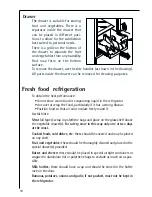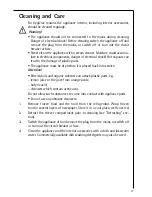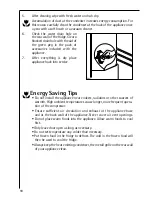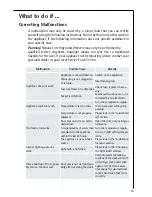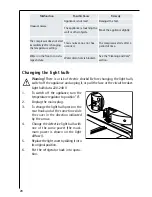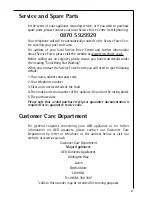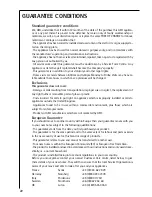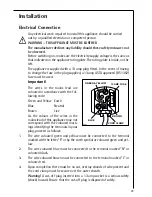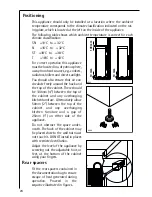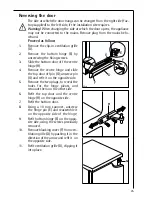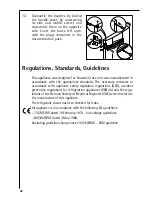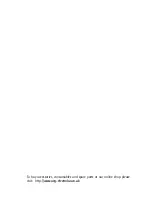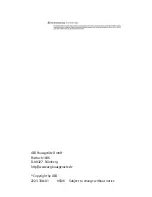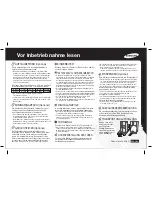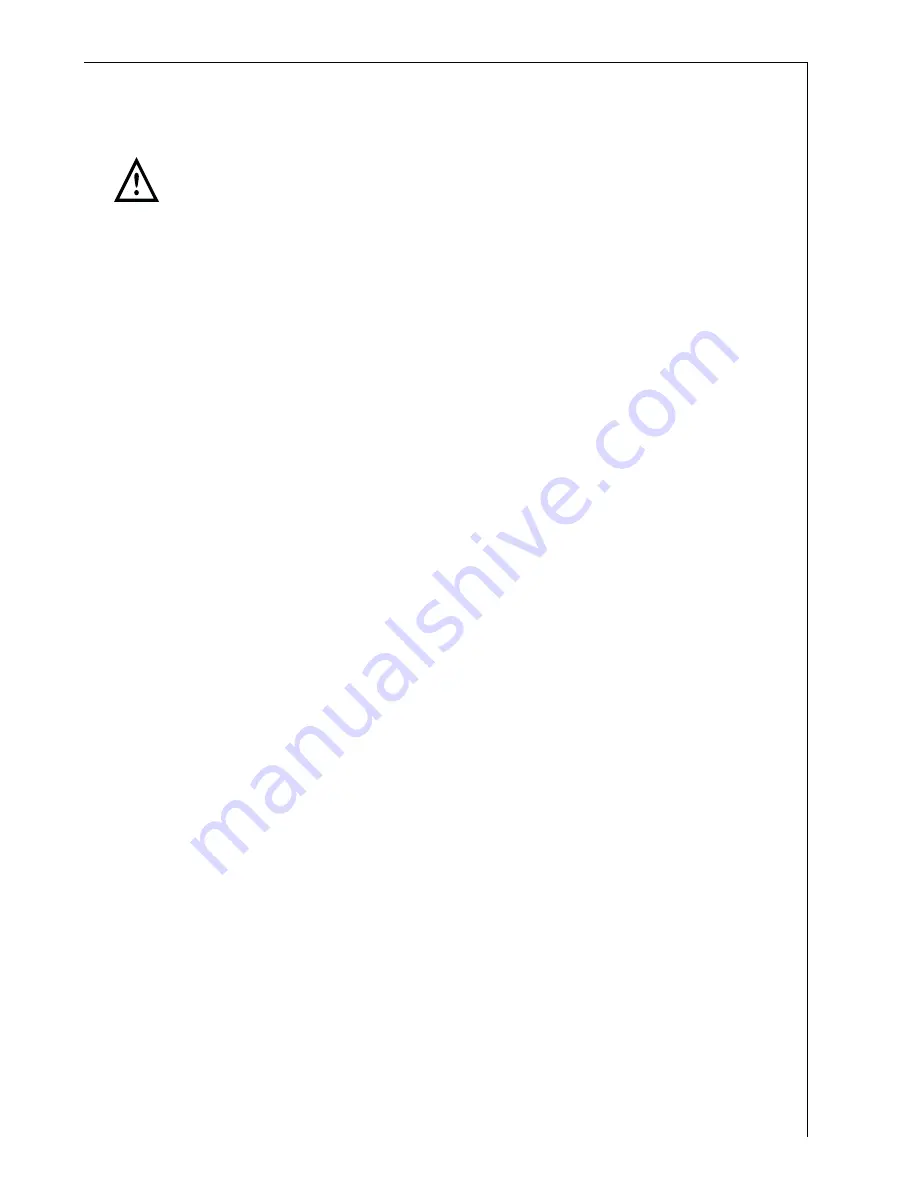
12
DESIRED temperature means:
The temperature that has been selected for inside the freezer. The DESIRED
temperature is indicated by flashing numbers.
ACTUAL temperature means:
The temperature display indicates the current temperature inside the freezer.
The ACTUAL temperature is indicated with illuminated numbers.
Temperature display
The temperature display can indicate several pieces of information.
•
During normal operation, the temperature currently present in the freezer
(ACTUAL temperature) is displayed.
•
When the temperature is being adjusted a flashing display indicates the
freezer temperature currently set (DESIRED temperature).
Starting Up - Setting the Temperature
1.
Plug the mains plug into the mains socket.
2.
Press ON/OFF button. The green mains pilot indicator illuminates. The alarm
light flashes since the temperature is reached. The buzzer sounds.
3.
Pressing button “N” the buzzer stops.
4.
Press either the “J“ or “L“ button. The temperature display switches over and
the DESIRED temperature currently set flashes on the temperature display.
5.
Set the required temperature by pressing the “J“ or “L“ buttons (see section
"Temperature setting buttons"). The temperature display will immediately
show the changed setting. Each time the button is pressed the temperatu-
re is adjusted by 1 °C.
From a food safety point of view -18 °C should be considered sufficiently
cold for storing food in the freezer.
6.
The alarm light,when the set temperature is reached. Press the alarm but-
ton to turn off the buzzer.
17
Cleaning and Care
For hygienic reasons the appliance interior, including interior accessories,
should be cleaned regularly.
Warning!
• The appliance should not be connected to the mains during cleaning.
Danger of electrical shock! Before cleaning switch the appliance off and
remove the plug from the mains, or switch off or turn out the circuit
breaker or fuse.
• Never clean the appliance with a steam cleaner. Moisture could accumu-
late in electrical components, danger of electrical shock! Hot vapours can
lead to the damage of plastic parts.
• The appliance must be dry before it is placed back into service.
Attention!
• Ethereal oils and organic solvents can attack plastic parts, e.g.
– lemon juice or the juice from orange peals;
– butyric acid;
– cleansers which contain acetic acid.
Do not allow such substances to come into contact with appliance parts.
• Do not use any abrasive cleansers.
1.
Remove frozen food and the food from the refrigerator. Wrap frozen
food in several layers of newspaper. Store it in a cool place, well covered.
2.
Defrost the freezer compartment prior to cleaning (see "Defrosting" sec-
tion).
3.
Switch the appliance off and remove the plug from the mains, or switch off
or turn out the circuit breaker or fuse.
4.
Clean the appliance and the interior accessories with a cloth and lukewarm
water. Commercially available dish washing detergents may also be used.








